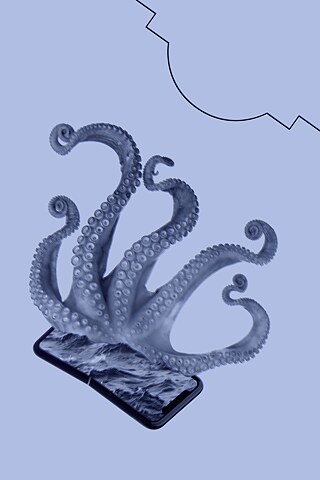A coproduction by Theater Neumarkt & Goethe-Institut/ Performing Architecture
100 Ways to say We
The project "100 Ways to say We" is a hybrid marathon format, a pre-enactement of multiple futures. The utopian marathon in a seemingly dystopian present unites 100 ideas by artists, theorists, activists and collectives from all over the world for a future "We". "100 Ways to Say We" manifests itself as an analog offline marathon event within the framework of the Architecture Biennale in Venice, as a live stream format and as an online project in the form of a digital archive of a possible present and future.
"We" implies a common ground. There are reasons to distrust any "We"; to call attention to differences; and to point out privileges as well as hierarchies. But there is also the danger of fragmentation: For decades neoliberalism has been separating society into individuals and has undermined collectivity. With the need to create new imaginary futures arises the necessity of a new "We" – a transversal collective will in which a multitude of demands come together.
TIMELINE
The online platform "100 Ways to Say We" will be launched as part of the 17th Architecture Biennale 2021 - La Biennale die Venezia - with an event of eyewitnesses of possible futures
Launch Website: 06.11.2021, 6pm (CET), Zoom
Offline Marathon: 06.11.2021, Centro Sociale Rivolta, Venice
To the events
The project "100 Ways to Say We" is a pre-enactment of multiple futures, a speculative-utopian take on the possibilities of the concept of "We". 100 eyewitnesses of the future contribute with lectures, talks, performances and videos and share their speculative, realistic, fictional, analytical, lyrical and/or musical view on the possible paths ahead of us. "100 Ways to Say We" is a utopian map created in a time of dystopian presence, as well as an archive of hypothetical futures that could expand our sense of possibilities and open up perspectives we haven’t had before.
"100 Ways to Say We" manifests itself as an analog event within the framework of the Architecture Biennale in Venice, as a live stream event and as an internet project in the form of a digital archive of a possible present and future.
The online platform "100 Ways to Say We" will be accessible starting November 6th 2021 at 6 p.m. (cet) with a zoom panel and will subsequently be available on the web. In parallel, an offline marathon of the "100 Ways to Say We" with live contributions will take place on November 6 at the Centro Sociale Rivolte in Venice. A preview screening will already take place on November 5th at Sale Docks in Venice.
With contributions by Moayed Abu Ammouna, Preethi Athreya, Jelili Atiku, Jérôme Bel, Franco „Bifo“ Berardi, Deborah Birch, biriken, Bisrat Negassi, Emanuele Braga, Brandy Butler, Ilenia Caleo and Silvia Calderoni, Carolina Cappelli, Sandra Chatterjee (CHAKKARs), Zhao Chuan, Fatou Cissé, Ginevra Dolcemare, Dragonfly, Radha D’Souza, Seraina Dür + Jonas Gillman & the Pigeons Ensemble, Malcolm Ferdinand, Tatiana Filippova, Julia Fritzsche, Benno Gammerl, Goldendean, Abraham Hurtado, Helen Hester, Wissal Houbabi, Theater Hora & Stefan Burger, Invernomuto, Dagna Jakubowska, Asmaa Jama & Gouled Ahmed, Claude Jansen, Kieron Jina, Eisa Jocson, Ranjit Kandalgaonkar, Mikhail Karikis & Danny McNally, Zaayan Khan, Oskar Kirmes, Sándor Klunker, Tang Fu Kuen, Adriana Lara, Song Long, Ana Longoni, Mappa Teatro, Sugano Matsusaki, Piersandra di Matteo, Mateja Meded, Wu Meng, Eleanor Morgan, Chirantan Mukherjee & Kaur Chimuk, Ibrahim Nehme & Frida, Adrian Notz, Sunna Nousuniemi, Nikolay Oleynikov, Janiv Oron, Paper Tiger, Shalini Randeria, Riar Rizaldi, Philip Rizk, Anand Rudra, Annalisa Sacchi, Gregory Sholette, Sik Ying Ho & Felix Hui, Jonas Staal, Pavel Sulyandziga, Mackda Ghebremariam Tesfau, Taiga Trece, Varinia Canto Vila, Angelo Vermeulen & Fred Sena (SEADS), Salam Yousry et al.
Konzept: Hayat Erdoğan, Nikolai E. Prawdzic & Florian Malzacher
Kuratiert von: Hayat Erdoğan, Marco Baravalle, Florian Malzacher, David Niederer, Nikolai E. Prawdzic & Susanne Traub

